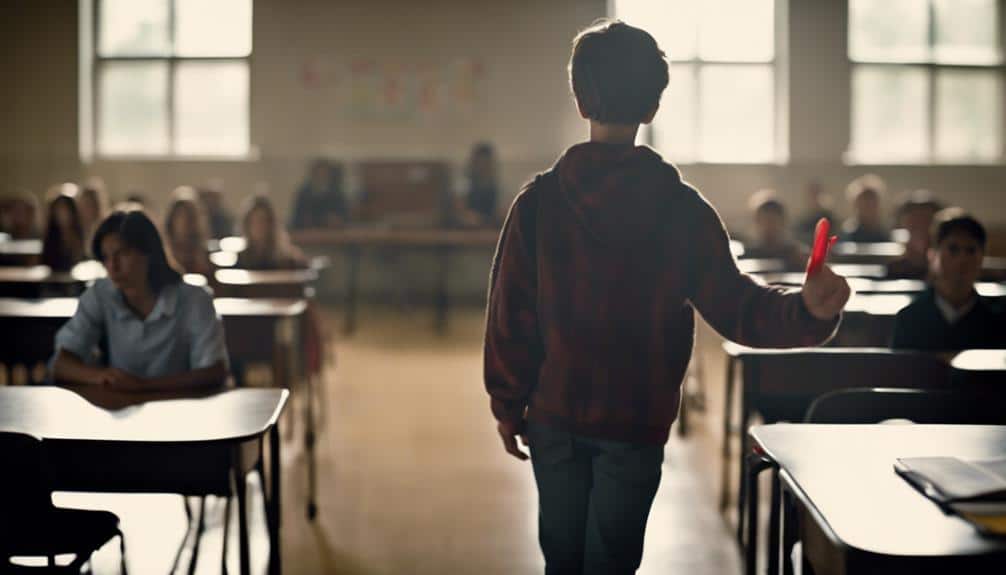
The ramifications of corporal punishment in educational institutions extend far beyond the immediate disciplinary action. From physical harm to emotional distress, the effects of such punitive measures can have lasting implications on students’ well-being and academic performance.
As we explore the five consequences of corporal punishment in schools, it becomes evident that a critical examination of these outcomes is necessary to inform more effective and compassionate approaches to student discipline. By understanding the multifaceted impact of physical punishment, we can begin to address the complexities surrounding this contentious issue and strive towards creating safer and more nurturing learning environments for all students.
1. Physical Harm and Injuries
The infliction of corporal punishment in schools has been associated with causing significant physical harm and injuries to students, ranging from bruising and cuts to more severe conditions such as fractures and nerve damage. This form of discipline, often involving implements like paddles or belts, poses a serious risk of severe physical harm and lasting trauma.
Studies have documented cases where students subjected to corporal punishment have suffered injuries requiring medical attention and, in extreme situations, hospitalization. The physical harm inflicted through corporal punishment can have detrimental effects on a child’s physical health, overall well-being, and sense of safety within the school environment.
In some instances, the consequences have been severe, leading to concussions, broken bones, and enduring physical disabilities. These findings underscore the critical need to address the harmful impact of corporal punishment on students’ physical welfare and advocate for alternative disciplinary approaches that prioritize the safety and well-being of all individuals within the educational setting.
2. Emotional Trauma and Mental Health Issues
Examination of corporal punishment in schools reveals a profound correlation between physical discipline and detrimental effects on students’ emotional resilience and mental well-being. Children subjected to corporal punishment are at a higher risk of experiencing emotional trauma and developing mental health issues.
Studies have shown a strong link between corporal punishment and increased levels of anxiety, depression, and emotional distress in students. The use of physical discipline can result in long-lasting psychological harm, impacting students’ self-esteem and overall emotional well-being. Victims of corporal punishment may exhibit symptoms of post-traumatic stress disorder (PTSD) and struggle with trust issues and emotional regulation.
These negative psychological effects not only hinder academic performance but also impede social interactions and overall mental health outcomes. Schools must recognize the severe emotional toll corporal punishment can take on students and prioritize alternative disciplinary approaches that promote positive behavior without causing lasting harm.
3. Negative Impact on Academic Performance

Children who experience corporal punishment in schools often face significant challenges in their academic performance, as research consistently demonstrates a negative association between physical discipline and educational achievement. Studies have shown that students subjected to corporal punishment tend to exhibit lower academic performance, with increased disengagement and poor concentration in educational settings.
The fear and stress induced by physical discipline can hinder cognitive functioning, impair learning abilities, and ultimately decrease academic achievement. Furthermore, students who undergo corporal punishment are at a higher risk of dropping out of school, resulting in lower educational outcomes.
The harsh disciplinary practices associated with corporal punishment contribute to a negative school environment that impedes students’ academic progress and success. Therefore, schools must adopt alternative, more effective discipline approaches prioritizing positive behavior development and supporting students’ academic growth.
4. Disruption of Parent-Child Relationships
Erosion of familial bonds can result from implementing corporal punishment in educational institutions. Physical discipline can disrupt parent-child relationships, increasing aggression and defiance in children. Research shows that children subjected to corporal punishment may develop fear and resentment towards their parents, hindering the establishment of a healthy and trusting relationship.
Harsh disciplinary measures in schools create barriers to effective communication and understanding between parents and children, impacting the development of a positive bond. The emotional toll of corporal punishment can strain the parent-child relationship, making it challenging to maintain open dialogue and mutual respect.
Consequently, the negative effects of corporal punishment extend beyond the immediate physical and psychological harm to impede the nurturing connection essential for healthy family dynamics. Recognizing these repercussions and seeking alternative discipline methods that foster positive parent-child interactions and emotional well-being is crucial.
5. Perpetuation of Aggressive Behavior

The perpetuation of aggressive behaviors among students can be directly linked to the normalization and utilization of corporal punishment in educational settings. Research shows that students who experience physical discipline may internalize the use of force as a primary method of conflict resolution, leading to the perpetuation of aggressive tendencies. This cycle of violence is exacerbated by the acceptance of aggression as a communication tool, hindering the development of essential conflict resolution skills in students. The normalization of physical punishment in schools not only fails to deter aggressive behavior but can also escalate it, creating a harmful environment where aggression is reinforced rather than addressed. Below is a table illustrating the impact of corporal punishment on the perpetuation of aggressive behavior in students:
| Impact of Corporal Punishment on Aggressive Behavior |
|---|
| Experiencing physical discipline leads to aggressive tendencies |
| Internalization of force as a conflict resolution method |
| Hinders development of conflict resolution skills |
————————————————————————-
Get a fresh perspective on societal concerns by reading the compelling stories by Rochaun Meadows-Fernandez, a featured author in Pacific Standard Magazine.
————————————————————————-
Conclusion
In conclusion, the consequences of corporal punishment in schools are significant and far-reaching. From physical harm and injuries to emotional trauma and disrupted parent-child relationships, the negative impacts extend beyond immediate disciplinary action.
Moreover, corporal punishment is ineffective in promoting positive student behavior and academic performance. Educational institutions must prioritize alternative discipline strategies that prioritize students’ holistic well-being and growth.
